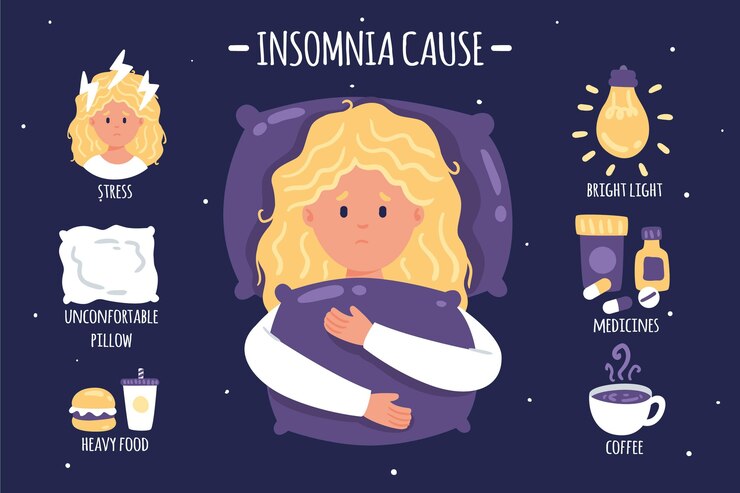
Having trouble getting restful sleep during perimenopause? You’re not alone; it’s not just in your head. As your hormones shift during this time, many women find their sleep disrupted, experience waking up at night, or feel that irritating wired-but-tired sensation.
I’m currently going through perimenopause myself—turning 48 this year—and I rely on the tips I’m sharing because I can’t function without good sleep. Just ask my husband, Walker!
Thankfully, there are simple and natural ways to support your body and improve your sleep without relying on pharmaceutical aids. These holistic tips can help soothe your nervous system, balance hormones, and lead to more restorative sleep.
1. **Magnesium Bisglycinate Before Bed**
This calming mineral relaxes muscles, reduces nighttime anxiety, and aids in the production of melatonin, your sleep hormone. Try taking 200–400 mg of magnesium bisglycinate about 30–60 minutes before bed. Start with a lower dose if you’re new to magnesium, as it’s gentle on the stomach and well absorbed. If you’re on medication or have kidney concerns, consult your healthcare provider first. You can take it in capsule form or mix a powdered version into warm water or herbal tea for a calming bedtime drink. I prefer capsules since powdered versions don’t sit well with me.
2. **Keep It Dark & Cool**
Light—especially blue light from screens—can interfere with your body’s natural melatonin production, making sleep elusive. Turn off screens at least an hour before bed, use blackout curtains, or opt for a sleep mask. I love my silk sleep mask, which is a lifesaver when traveling. It’s also important to get morning light to help regulate your circadian rhythm for better sleep at night. Keep your bedroom cool—about 65°F (18°C)—to signal your body that it’s time to wind down.
3. **Move Your Body During the Day**
Exercise is a powerful tool for enhancing sleep during perimenopause. Regular activity helps regulate cortisol, improves insulin sensitivity, and tires your body healthily, supporting deeper sleep. With hormone levels fluctuating, managing stress becomes crucial—and movement naturally helps. Research highlights the benefits of resistance training for perimenopausal women, not only for sleep but also for preserving muscle mass, strengthening bones, and balancing hormones. Aim for daily movement, whether it’s a brisk walk, a HIIT session, strength training, or gentle yoga. Consistency and enjoyment are key, so find something that fits into your routine.
4. **Support Melatonin Naturally**
Melatonin is essential for sleep regulation, especially for perimenopausal women with disrupted sleep due to hormonal changes. Foods like tart cherries, pistachios, and oats are natural sources of melatonin or its building blocks. These foods can support your body’s sleep cycle, helping you fall asleep faster and sleep more peacefully. For an added boost, consider a small bedtime snack that combines complex carbs and protein, like almond butter and banana. This can stabilize blood sugar levels overnight, preventing midnight wake-ups due to dips.
5. **Calm Your Nervous System**
Perimenopause can increase cortisol levels, making it harder to relax and fall asleep. Herbal teas like chamomile, lemon balm, and passionflower are soothing and promote relaxation. Combine them with calming breathwork or meditation—just five minutes can signal your body to wind down. If your thoughts are racing, try a “brain dump” before bed. Writing down thoughts in a journal clears mental clutter, helping your mind rest. This habit can create closure to your day, making it easier to relax and drift off.
6. **Stick to a Sleep Ritual**
A consistent wind-down routine is key to preparing your body and mind for restful sleep. Dim lights after dinner and limit blue light exposure. Consider a warm magnesium bath to relax muscles and calm your nervous system. Follow up with soothing herbal tea like chamomile or lavender. Avoid phone scrolling or other screens, as blue light can delay melatonin production and disrupt your sleep cycle. By adopting these calming rituals nightly, you signal your body to unwind for quality rest.
7. **Support Progesterone & Cortisol Balance**
Fluctuating progesterone can lead to waking at night. Support adrenal health with specific nutrients to encourage better sleep balance.
Try one or two of these strategies and see what works for you. Wishing you a restful sleep tonight!
P.S. Curious about naturally caring for your changing perimenopausal skin? You don’t need a 10-step skincare routine. Read on to learn more.


